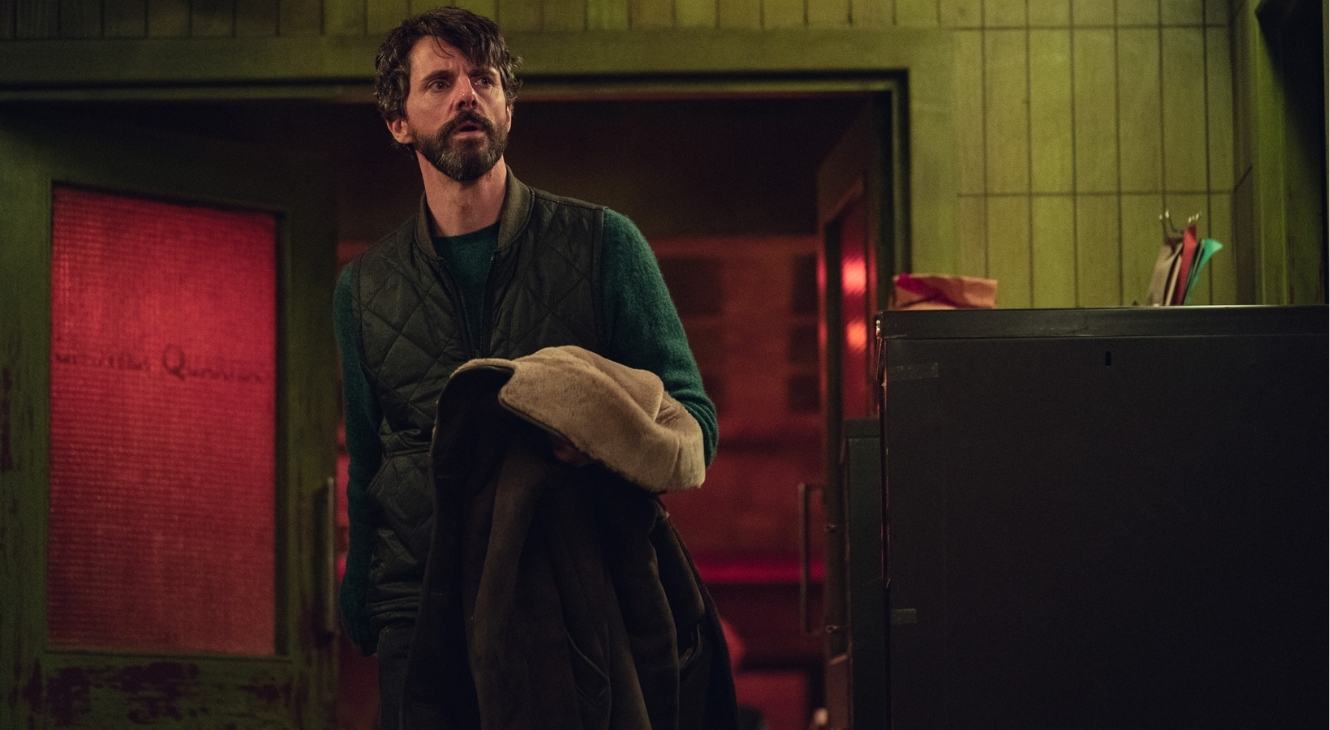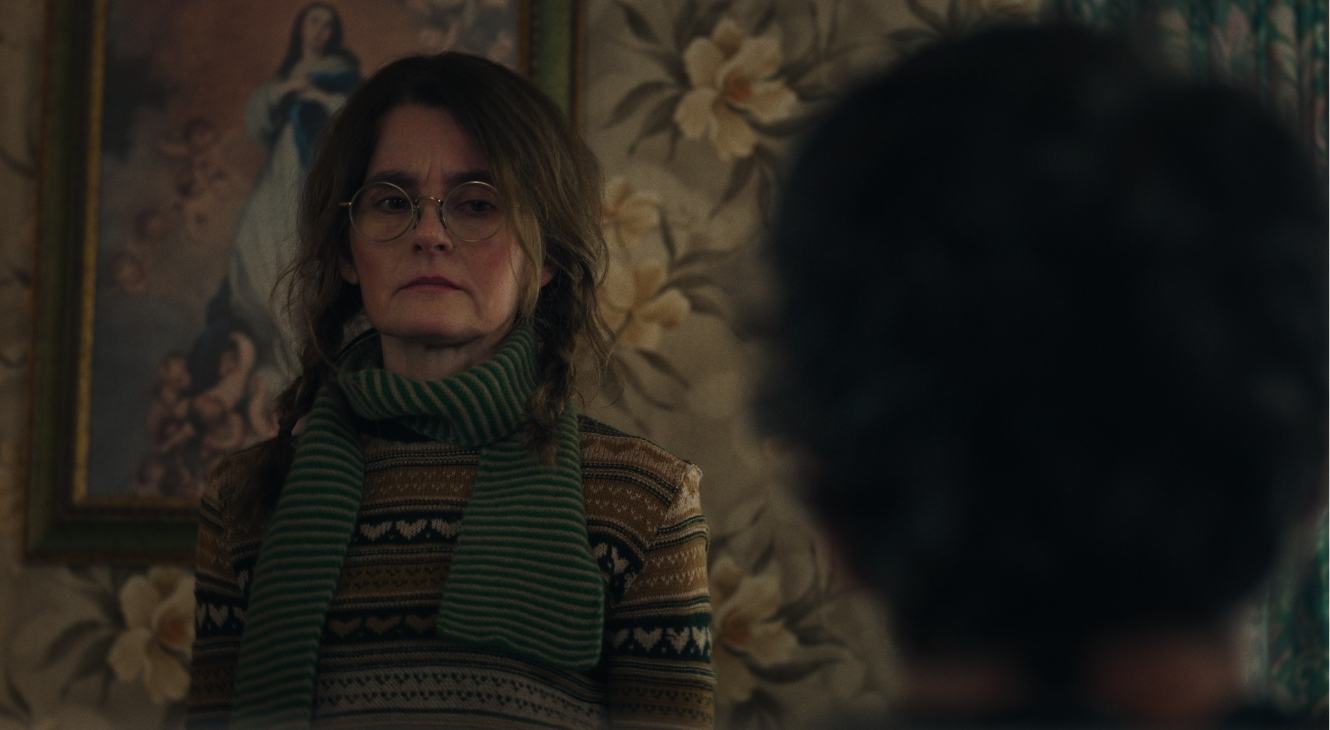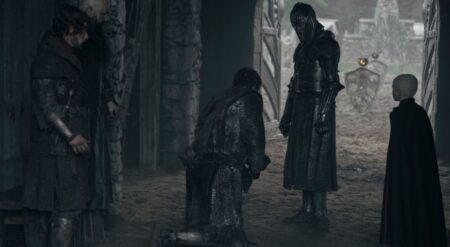Dept Q is all about trauma and mystery. The series is a detective drama written and directed by Scott Frank (The Crown, The Queen’s Gambit) and executive producers Rob Bullock, Scott Frank, and Andy Harries. With a stacked cast of actors, Dept Q chronicles one investigation, a ton of trauma, and takes its time to develop characters with deeply personal stories. Based on a series of books from Jussi Adler-Olsen, Dept Q Season 1 feels like a natural series that’s meant to continue as the books have.
Starring Matthew Goode, Chloe Pirrie, Alexej Manvelov, Kelly Macdonald, and Leah Byrne, Dept Q focuses on DCI Carl Morck. He is a brilliant cop but a terrible colleague. His razor-sharp sarcasm has made him no friends in the Edinburgh police, and after he survives a shooting that left a young pc dead and his partner paralyzed, he’s even harder to get along with.
When self-isolating turns into career isolation, Carl finds himself assigned to Department Q. The titular department is in a forgotten basement. Still, it has a significant focus: solving cold cases. Well, it’s significant to DCI Morck, at least. In reality, Department Q is equally a way to keep Carl out of the way but employed and a thoughtful PR Stunt for the Edinburgh police. With very public failures, the department exists to distract the public from the under-resourced, failing police force.
Dept Q puts broken people at the center of its story.

More by accident than design, Carl starts to build a gang of strays who have everything to prove. When the stone-cold trail of a prominent prosecutor who disappeared several years ago starts to heat up, Carl is back doing what he does best, as Carl starts rattling cages and refusing to take no for an answer, the passions that are ignited and stoked with guilt from his past failings burn through the cold trail.
The case itself is the disappearance of Merrit Lingard (Chloe Pirrie). The civil servant was hated by many, respected by even more, and prominent enough to bank a considerable amount of public goodwill, as Department Q shares that they may be able to find her, four years after her disappearance.
DCI Morck’s new partners (because that’s what they become) include DC Rose Dickson (Leah Byrne), a detective confined to her desk by her seniors after a car accident caused severe nerve damage. To her, Department Q is her way to tell her superiors that she is still capable and worth something in the field. She’s quick-witted and finds connections between people easier than Carl because her empathy is essential to her.
Then there is my personal favorite, Carl Morck’s assistant Akram Salim (Alexej Manvelov). A Syrian immigrant, Akram, is consistently underestimated by Morck and those around him. He’s supposed to file paperwork and listen to Morck, but Akram is better than that. He’s a former police officer himself, just like many immigrants in any country; his experience means nothing to his new home.
How does Dept Q make us root for saving a person who just isn’t good?

Throughout Dept Q, Akram constantly surprises Morck and slowly becomes a foundational reason for them doing their jobs. It’s not that Akram needed to be anything more than an assistant, but the reality is that Department Q doesn’t succeed without his advancement and Morck viewing him as an equal. Akram is easily the series’ most underrated character, even though he begins to take prominence only towards the end of the season.
As the series navigates internal intrigue, they uncovers murderers who are guilty but ultimately not responsible for Merrit’s disappearance. While the focus of Dept Q Season 1 is all about finding Merritt, the stones the team flips over work to uncover new and intimately personal transgressions for all involved, none more so for Merritt.
While Merritt was respected and feared by colleagues, her methodology didn’t always point true north. Instead, she worked in the grey areas of morality, dedicated to getting things done and unconcerned with throwing her informants under the bus, as Dept Q cuts away to Merritt’s current confinement, we also look back at her transgressions. The people she has left to rot in prison after using them for her career, and to close cases. The man she conquered. Ultimately, Merritt sucks. But that feels like the point of Dept Q.
Matthew Goode captures the complexity of justice as DCI Carl Morck.

While Dept. Q is a crime thriller, its tension and investment come from its ability to break its characters down. Every person in this ensemble cast is broken in some way. Sometimes, it’s personal restraint from trauma, like Carl Morck, and other times, it’s selfishness making their every choice begin to spiral. To care about the characters in this series is to care about their vulnerabilities, insecurities, and the intimate connections they form through them.
A cornerstone of crime dramas and thrillers is that the characters aren’t perfect, squeaky-clean archetypes of justice. Instead, good stories highlight the stains that police departments have that the justice system tries to rinse away in Dept Q; they’re never completely washed away, and that makes for a compelling series.
Dept Q may stumble in its finale, but the open door it leaves for future cold cases is an element I can’t stop thinking about. While that seems to be standard for television series now, when done well, it pulls you in. That’s what Dept Q does: It effortlessly pulls you into its crime and drama and asks you to stay. The series asks you to give Department Q another case, and I hope Netflix does.
Dept Q is streaming now, exclusively on Netflix.
Dept. Q Season 1
-
Rating - 8/108/10
TL;DR
A cornerstone of crime dramas and thrillers is that the characters aren’t perfect, squeaky-clean archetypes of justice. Instead, good stories highlight the stains that police departments have that the justice system tries to rinse away. In Dept Q, they’re never completely washed away, and that makes for a compelling series.







